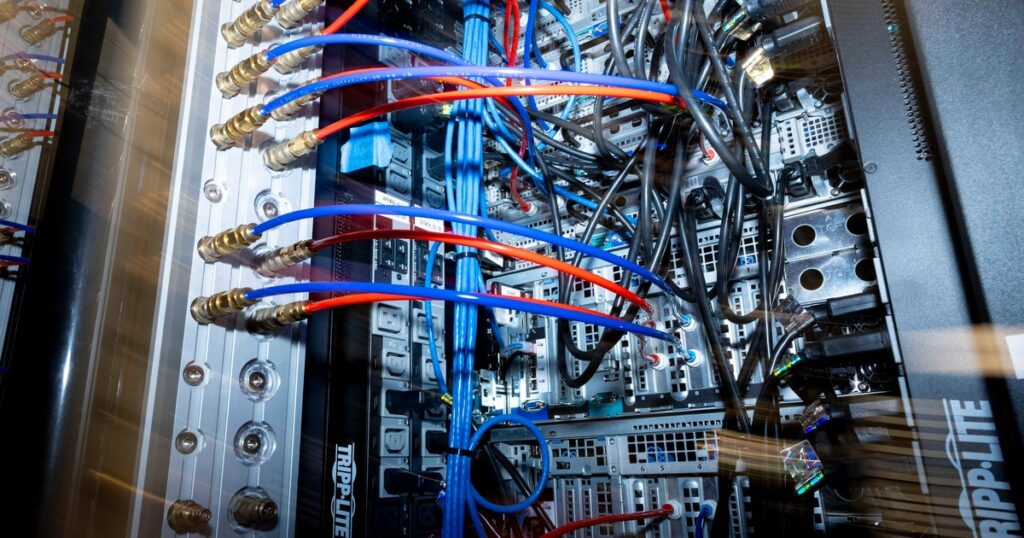The AI revolution is likely to drive up your electricity bill. Here's why.
The AI revolution is likely to drive up your electricity bill. Here's why.

Utilities are racing to build data centers to meet surging demand for AI and other tech services. Ratepayers will pick up the tab, experts say.
Read the full article on CBS Money
Truth Analysis
Analysis Summary:
The article is mostly accurate in its central claim that AI development will likely increase electricity bills due to the energy demands of data centers. However, it presents a somewhat simplified view, focusing primarily on the cost burden for ratepayers while downplaying potential benefits or mitigating factors. The article exhibits a moderate bias by emphasizing the negative consequences without fully exploring alternative perspectives.
Detailed Analysis:
- Claim:** Utilities are racing to build data centers to meet surging demand for AI and other tech services.
- Verification Source #2: Supports this claim, noting a projected 160% increase in data center power demand due to AI.
- Verification Source #3: Supports this claim by stating AI systems vary widely in energy consumption, but the overall trend is pushing up global greenhouse gas emissions.
- Claim:** Ratepayers will pick up the tab, experts say.
- This claim is plausible, but the provided sources do not directly confirm that *ratepayers* will specifically "pick up the tab." Verification Source #2 discusses the cost of increased power demand but doesn't specify who will bear the financial burden.
- Internal Knowledge:* It is reasonable to assume that increased electricity demand and infrastructure development costs will eventually be passed on to consumers through higher rates. However, without direct confirmation from the provided sources, this remains an assumption.
- Omission:** The article does not adequately address potential benefits of AI that could offset increased energy consumption, such as improved energy efficiency in other sectors.
- Verification Source #3: Mentions that AI could potentially reduce emissions in some applications, offering a contrasting perspective.
- Verification Source #5: Bill Gates discusses the potential of AI to address climate change and energy challenges.
Supporting Evidence/Contradictions:
- Agreement:** Verification Source #2 and Verification Source #3 agree that AI is driving increased power demand.
- Lack of Coverage:** The provided sources do not explicitly confirm that ratepayers will directly "pick up the tab" for increased data center construction and energy consumption. This is a logical inference but not directly supported.
- Contradiction/Omission:** The article omits the potential for AI to contribute to energy efficiency or climate solutions, as suggested by Verification Source #3 and Verification Source #5. This omission contributes to the article's bias.

